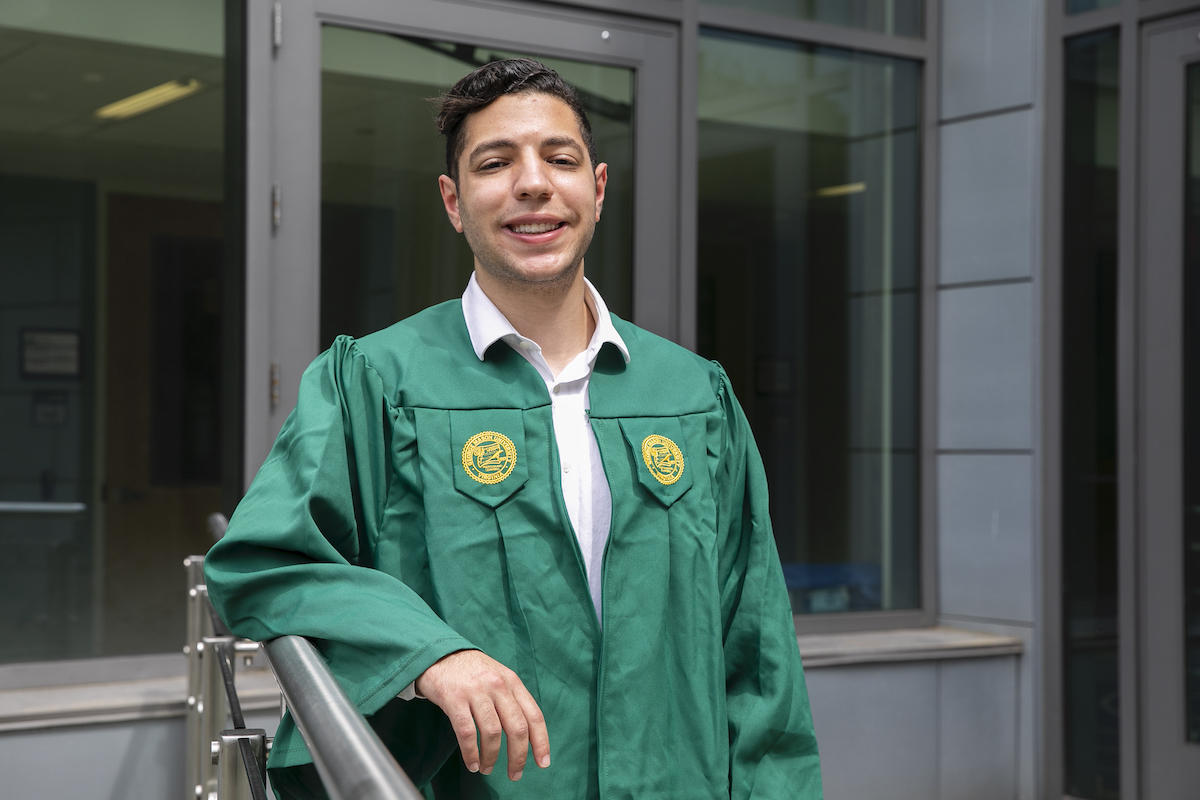When George Mason University senior Malek Salhab mentioned he was Palestinian from Jerusalem, the logical question was, how did he find Mason?
Easy, he said, “my parents are alumni.”
Alan Salhab, BA Art ’97, and Nancy Khater, BA English ’01, attended Mason together, married and moved to Alan’s native Jerusalem. So when it was time for Malek to apply to college, Mason had an edge.
Malek, a neuroscience major and member of Mason’s Honors College, who will attend medical school at Virginia Commonwealth University as an early selection candidate on scholarship, said Mason did not disappoint.
“It’s provided an amazing opportunity for me to reach my potential and exceed my own expectations,” he said.
Salhab made the most of that opportunity.
He began the Mason chapter of United 2 Heal, a humanitarian nonprofit that provides donated medical supplies to underserved countries around the world. And he started the Health-Link Institute that provides aid to communities with a high concentration of disenfranchised people, such as Washington, D.C.
In addition to community service, Salhab has conducted research at Mason’s Krasnow Institute for Advanced Study, and served on the President-Student Advisory Group and on the American Medical Student Association.
Salhab received the 2021 Spirit of King Award, presented to a student who made exceptional contributions to the development of an inclusive learning environment, and Student Involvement’s Distinguished Quill Award for senior leadership.
“What sets him apart is his compassion for others and his drive to make a difference in the world,” said Mimi Lewis Qurashi, health professions advising coordinator in Mason’s Office of the Provost and Executive Vice President. “It’s been inspiring to see the impact Malek has made during his time at Mason. I have no doubt with his skills and the knowledge he gains at VCU, he’ll make an even greater impact as a physician.”
For Salhab, creating those organizations carried personal value.
He called the medical infrastructure in Jerusalem “unacceptable.”
“Nobody really talks about medical infrastructure and supply shortages,” Salhab said. “People think, ‘Well, those countries, whether third world or otherwise, they are not as advanced,’ when the fix is really simple—send medical supplies.”
Salhab said United 2 Heal approaches hospitals and requests donations of surplus equipment, picks up the equipment and ships it oversees. Fundraisers help defray shipping costs.
Though rewarding, the effort is somewhat impersonal, which was part of the motivation for starting the Health-Link Institute, Salhab said.
“You’re physically handing a lunch bag to someone in front of you, and you can interact with that person,” he said, adding that the organization also was a way to break down academic silos at the university.
“I wanted to bring the pre-health professions—pre-med, pre-dentistry, pre-pharmacy and nursing—under one veil, so to speak,” Salhab said. “I saw people from a wide range working on the same project. We were all collaborating, which will be the case in our futures as health care professionals.”
Similar, he said, to how he collaborated with Mason.
“Whenever I wanted to do something bigger or better or more ambitious, Mason was always there to match my ambition,” Salhab said. “My experience here has been amazing.”

